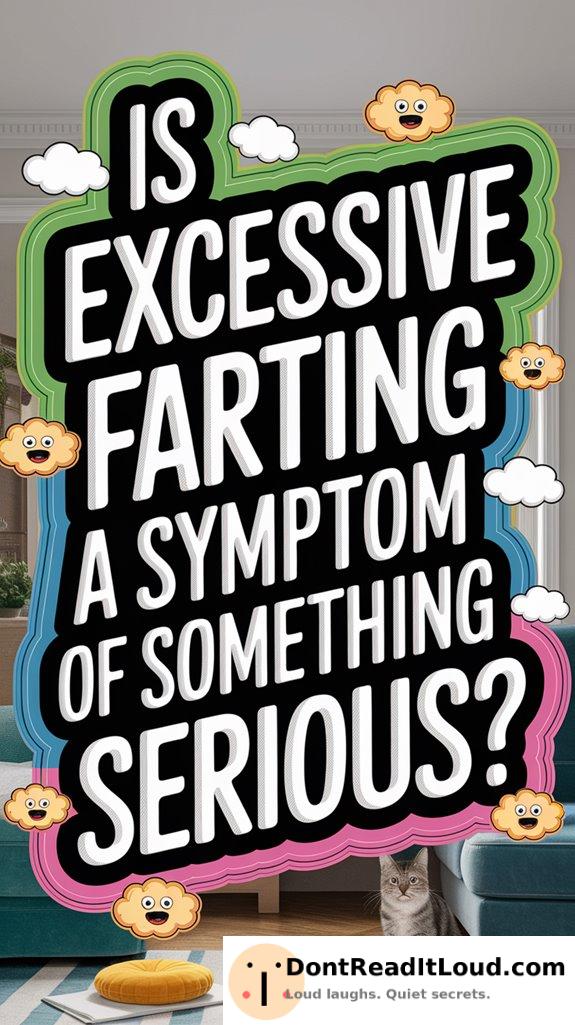
Excessive farting is usually harmless and often results from certain foods or swallowing air. If you also have belly pain, persistent bloating, diarrhea, constipation, unexplained weight loss, or blood in your stool, it could signal a more serious digestive problem like IBS, lactose intolerance, or an infection. Tracking your symptoms and diet can help you understand what’s happening and guide you toward answers.

Have you ever wondered if excessive farting means more than just a reaction to last night’s dinner? While everyone passes gas, you might worry if it becomes more frequent or the odor gets stronger. It’s easy to blame your diet, but ongoing or unusually frequent gas could suggest underlying digestive issues. Understanding what causes increased gas helps you decide whether it’s a harmless side effect of what you eat or something more concerning.
Most gas in your digestive system comes from simple sources. Swallowing air, drinking carbonated beverages, or eating foods high in fiber such as beans, broccoli, and onions can all contribute. Your digestive system depends on how well your body breaks down these foods. If your body can’t digest certain carbohydrates, bacteria in your colon take over and release gas as a result.
Sometimes, changes in your diet, stress, or your gut’s bacterial balance can also play a role. However, if excessive farting comes with other symptoms—like ongoing belly pain, bloating, diarrhea, constipation, or unexplained weight loss—you should pay attention. These symptoms can point to issues like lactose intolerance, irritable bowel syndrome (IBS), celiac disease, or an infection.
When your digestive system is affected by these conditions, the way your gut handles food changes, often leading to more gas. In rare cases, excessive gas can signal more serious conditions, such as inflammatory bowel disease (IBD) or colon cancer, especially if you notice blood in your stool or severe symptoms.
Don’t ignore lasting changes in your digestive habits. If gas bothers you or affects your daily life, try keeping a food diary to track triggers and patterns. This can help you identify specific causes and see if changing your diet or habits helps. If symptoms don’t improve, get worse, or are joined by warning signs, see a healthcare provider. They can check for underlying digestive problems and guide you on what to do next.
Conclusion
If you’re farting more than usual, don’t panic—it’s often related to your diet or how your body processes food. However, if you also notice pain, unexplained weight loss, or changes in your stool, it’s a good idea to talk to your doctor. Trust your instincts since you know your body best. Most of the time, farting isn’t a cause for concern, but it’s wise to seek answers if something feels off.



